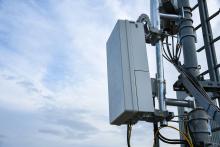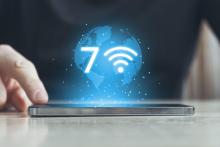There's not much question that the best thing about Apple's newest innovation in intelligent device design wasn't a feature on the iPhone 5 itself. It was the Jimmy Kimmel bit showing passing Los Angelenos praising the innovation and big improvements in the iPhone 5--which is out today, as you undoubtedly know--while actually holding and praising an iPhone 4.
Even the guy who claimed to have an iPhone 4S praised the "new" version without realizing the phone he held could have been his own.
Apple's response was to say people loved the iPhone 4S so much they couldn't bear the trauma of too many changes with the new version. That only proves that the death of Steve Jobs may have robbed Apple of its talent for performance art, but not of its ability to deny the obvious with the elan and oblivious confidence of a committed and pathological narcissist.
The False Promise of "Unlimited" Data
There are plenty of good performance-related things about the iPhone 5, too, of course. Apple probably doesn't want to brag about the best of those either, though.
The real, actual best thing about the iPhone 5 is that Verizon reversed its decision to end the unlimited data plan of its current iPhone customers if they were rash enough to upgrade to the newest model.
Not everyone is getting the deal, of course--not even all iPhone users.
New iPhone 4S users could buy the unlimited data plans for less than six months after Verizon began selling the phones and was eager to recruit new iPhone users and entice AT&T iPhoners to change their luck. After then, it was tiered pricing, data caps and higher fees from Verizon.
Unpleasant as it was, it was no surprise. The same day Apple COO Lowell McAdam announced the $30 unlimited data plan he said it was temporary, promotional and would give way to the same tiered-pricing structure that AT&T was already using.
Cult of Mac reported by Feb. 3 that data caps were already on the way for Verizon iPhone users.
Even AT&T customers already using an iPhone 4 didn't automatically get the unlimited data at Verizon--they signed when AT&T was already offering a tiered plan, so they got no shot at Verizon's.
Both AT&T and Verizon used enough subterfuge in the switchover to satisfy a Congressional subcommittee on investigations. Both switched to data plans that charged more beyond relatively low data caps, for example, while still calling the service "unlimited."
Next: The real improvement in Apple's iPhone 5








